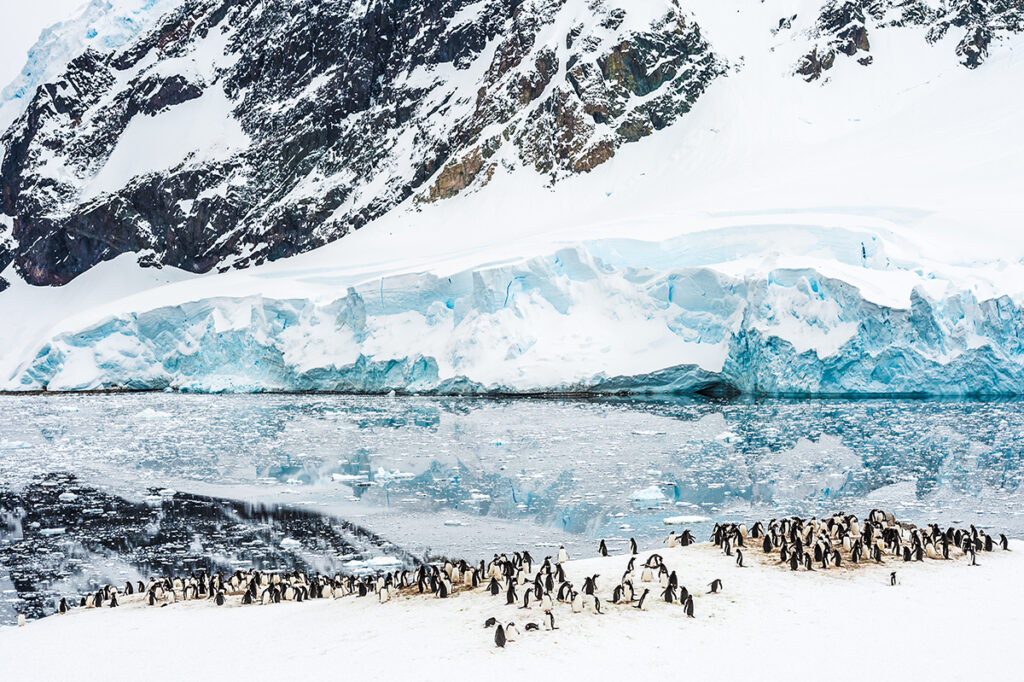On the remote South Georgia Island, a remarkable and ultra-rare king penguin has been discovered, setting itself apart from the iconic black-and-white appearance of its peers. This rare penguin, fully cloaked in black feathers, has fascinated researchers, wildlife enthusiasts, and photographers alike.
The penguin was spotted and photographed by Belgian wildlife photographer Yves Adams, who specializes in documenting rare animal colorations. Previously, Adams gained recognition for capturing images of a yellow-and-white penguin in 2021. On this occasion, he received a tip from his expedition leader about an unusual bird in the area. Determined to find the creature, Adams ventured into the colony of hundreds of thousands of penguins with his camera, eventually locating the rare melanistic king penguin.
Melanism, the genetic mutation behind the penguin’s striking look, occurs due to an excess production of melanin—the pigment responsible for darkening skin, fur, and feathers. In contrast to albinism and leucism, which cause pale or white coloration due to a pigment deficiency, melanism results in either a fully black or partially black appearance. This mutation is extremely rare, especially in king penguins, where even partial melanism is estimated to occur in only one out of 250,000 individuals. The all-black penguin on South Georgia Island is likely even rarer, as such cases are scarcely documented in scientific literature.
Despite its lack of the usual white belly that helps king penguins blend into their environment, this melanistic penguin has managed to thrive. Camouflage is an essential adaptation for these birds, particularly in avoiding predators. Yet, this individual has defied the odds, reaching adulthood without its natural concealment.
Interestingly, the bird’s striking black plumage is not entirely uniform. While it appears completely black from afar, closer inspection reveals subtle metallic green markings on its neck and belly. These details add another layer of intrigue to its already captivating appearance. Furthermore, the penguin has been fully accepted by its colony, displaying no behavioral or size differences compared to other king penguins.
Melanistic birds typically retain some white patches, as seen in previously documented examples. This all-black king penguin, however, stands out as a truly unique individual and may represent one of the rarest penguins ever recorded. Similar melanistic birds have been featured in wildlife documentaries, but this penguin’s full-body melanism sets it apart.
The discovery highlights the extraordinary biodiversity found on South Georgia Island and the importance of preserving such habitats. With only a few expeditions reaching the island each season, the melanistic king penguin serves as a reminder of the planet’s hidden wonders, waiting to be uncovered.


